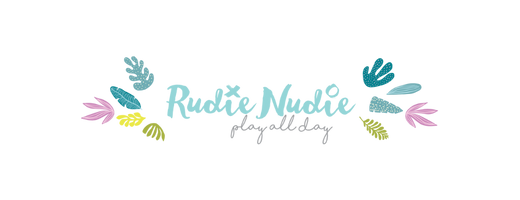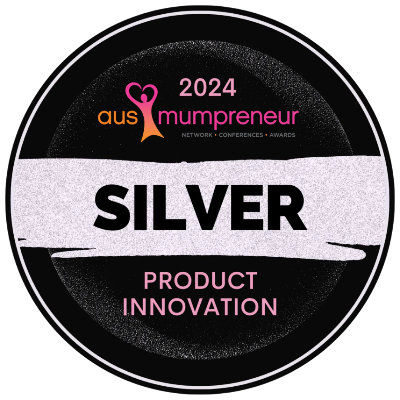Those sweet weeks immediately post-partum are the best AND the worst; a mixture of baby bliss and bonding, sore cracked nipples and a baby constantly attached, frequent wakings, a million overnight feeds and simply trying to figure it all out. We may feel a mixture of elation and exhaustion but generally feel ok with this, as the saying goes ‘this too shall pass’.
But what happens if as time goes on, you don’t feel like you’re ‘bouncing back’ and it starts to feel like things will never change. You may feel exhausted (even though baby is sleeping), frazzled, forgetful and overwhelmed. You see your doctor and they tell you this is ‘normal’ and to give it time, but something in the back is telling you that it's more than this. I can say from my experience of working with so many mothers experiencing these symptoms that it may be common, but it is far from ‘normal’.
In my naturopathic practice, I am endlessly discussing these symptoms, using the phrase ‘post-partum depletion’. It is my number one goal to educate as many women as possible about what it is and how to beat it so that more women can not only enjoy parenthood but can also thrive and enjoy their whole lives.
Whilst it is not a diagnosed ‘condition’, post-partum depletion refers to physical, emotional and mental exhaustion or fatigue. It’s that feeling of running on empty, of having not ‘bounced back’ or having ‘baby brain’ after your babies have grown into toddlers or even children.
What are the signs?
- Exhaustion
- Fatigue
- Brain fog/baby brain
- Nutritional deficiencies
- Feelings of overwhelm or burnout
- Difficulty concentrating
- Low libido
- Anxiety
- Hyper vigilance (always feeling ‘on’)
- Frequent sickness
- Difficulty losing weight
When women come to see me in the post-partum period, I immediately focus on addressing nutritional deficiencies and ‘filling the tank’.
Whilst all nutrients are important for good health, and most work together to keep things ticking along nicely, there are key nutrients that are depleted during pregnancy that can have a massive impact on energy, mood and mental health and much more.
Micro-minerals (needed in small amounts):
- Zinc - required for over 400 processes in the body; seriously depleted during pregnancy as it’s required for the growth and development of your baby. Required for digestive function, nervous system function, hormone production, skin/hair/nail health, immune system function, liver detoxification and more.
- Iron - required for red blood cell production, immune system function, detoxification, thyroid function and energy.
- B12 - required for red blood cell production, nervous system function, liver detoxification, methylation and energy production. A healthy gut is required for maintaining good levels and optimal digestive function for its absorption.
- Folate - interestingly folate is required for the production of breastmilk; also required for red blood cell production, nervous system function, liver detoxification, methylation and energy production.
- Vitamin D - not just for bone health! Required for immune system function and regulation of immune function (keeping autoimmune diseases at bay), mood regulation and reducing inflammation
- Magnesium - required for energy, muscle relaxation, sleep promotion, nervous system function and detoxification.
Macro-nutrients (needed in much larger amounts):
- Protein - the amino acids in protein are required for neurotransmitter production (serotonin, dopamine and adrenaline), along with liver detoxification, immune function and hormone production. Protein foods keep us full longer, stabilise our energy and quench cravings.
- Carbohydrates - provide energy and keep us full longer; carbohydrate rich foods are rich in fibre which feed our gut bacteria.
- Fats - in particular essential fatty acids like Omega 3. Omega 3 fatty acids contain a component called DHA. DHA is in high demand during pregnancy and breast feeding as it is essential for the growth and development of the brain in infants. In adults, it is also essential for healthy brain function and there is a strong correlation between depleted levels of DHA and post-partum depression (and other mental health issues).
- Water - dehydration massively impacts the way our body functions, along with impacting energy and concentration. We need water to make blood, enzymes and acids and keep our bowel movements regular. Breastfeeding increases the demand for water and dehydration can impact supply.
Where are these nutrients found?
Zinc: red meat, poultry, dairy, eggs, nuts (especially cashews), seeds (especially sunflower and pumpkin seeds), chickpeas and other legumes, brown rice, spinach and mushrooms
Iron: red meat, poultry, eggs, leafy greens, legumes, tempe and tofu
B12: animal products (meat, poultry, eggs, dairy), small amounts in tempe and algae like spirulina
Folate: leafy green veggies, avocado, chickpeas and other legumes, brown rice, asparagus, citrus, banana, broccoli
Vitamin D: sunshine is the ultimate way to get vitamin D, however some foods also contain vitamin D including sardines, salmon, eggs and cheese
Magnesium: leafy greens, chickpeas, brown rice, nuts, banana
Protein: red meat, poultry, pork, dairy, eggs, nuts, seeds, wholegrains and legumes
Carbohydrates: go for complex carbohydrates found in wholegrains and pseudo-grains (quinoa and buckwheat), nuts, seeds, potato, sweet potato, legumes
Omega 3/DHA: oily fish such as salmon, sardines and anchovies, walnuts, hemp, chia and flax seeds
Water: obviously drinking water is the way to dramatically increase your water intake, but if you are struggling, don’t forget that herbal teas count towards your water intake! Increasing moisture rich foods will also help, go for: cucumber, celery, zucchini, soups/broths, berries, melon and citrus
Sounds great but how do I get these foods my day as easily as possible?
Start with what I like to call ‘healthy enough’ eating:
- Baked beans on toast
- Fried, boiled or scrambled eggs on toast
- Frozen veggies
- Store bought soups
- Nut butter on toast
- Porridge (topped with LSA, nuts and other seeds)
- smoothies
My top nutrient dense foods:
- Avocado
- Eggs
- Nuts - particularly walnuts and Brazil nuts
- Seeds - especially chia, hemp, flaxseed, sunflower and pumpkin seeds
- Protein rich foods - legumes, wholegrains, poultry, fish, red meat, quality protein powder or collagen
- Leafy greens
- Veggies - broccoli, sweet potato, carrot, red cabbage, coloured capsicum, onions, garlic, leeks
- Fruit - bananas, berries, kiwi fruit, citrus, pineapple, apples, pears
Eating for more energy
Eat a source of protein with each meal:
- Breakfast: eggs, nuts & seeds added to cereal/porridge, nut butter on toast, protein powder/egg/collagen added to smoothies, natural yogurt added to smoothies or muesli
- Snacks: hummus with veggie sticks or crackers; nut butter with apple slices; nuts & seeds; boiled eggs
- Lunch (where every mother I know falls apart!): save leftovers; added boiled eggs or tinned fish to leftover veggies; freezer stash soups or curries with legumes, bone broth, chicken/red meat added
- Use natural sugars and fat to give you a pick me up, quench cravings and keep you full longer:
- Fruit! Berries or chopped banana with yogurt, fruit on its own; sliced apple with nut butter
- Hemp/chia/flaxseeds added to treats; chia pudding or sprinkled on top of meals
- Coconut oil added to bliss balls or baked treats (I actually have a little teaspoon when craving something sweet)
- Nut butter
- Nuts & seeds
- Drink more water:
- Aim for 1.5-3 litres daily
- Don’t forget that lemon juice in warm water and herbal teas count!
- Increase moisture rich foods i.e soups, broths, fruits and veggies
Now I feel like a good percentage of you will read this and think ‘ah I just need a good multi-vitamin and I’ll be sorted’! Before you head over to the chemist or supermarket to get yourself some cheap supplements, I want to you think about where you’d like to be health wise and if a band aid ‘solution’ ties in with these goals.
You will save yourself a TON of money by going to your GP and asking for bloods covering some of these key nutrients covered above (zinc, iron, vitamin D) at your 6 week post-partum check-up (or anytime if you are beyond 6 weeks post-partum), grabbing a copy of them and booking yourself in to see a naturopath for targeted and individualised advice. This is where those other factors that may also play a role in supporting post-partum depletion (gut and digestive health, stress, mental and hormone health) will be addressed to lay the foundation for good health now and beyond.
Renee is a Naturopath at Westside Wellness, based in Yarraville [Melbourne]. Renee offers face to face or online sessions. For more information, visit www.westsidewellness.com.au







